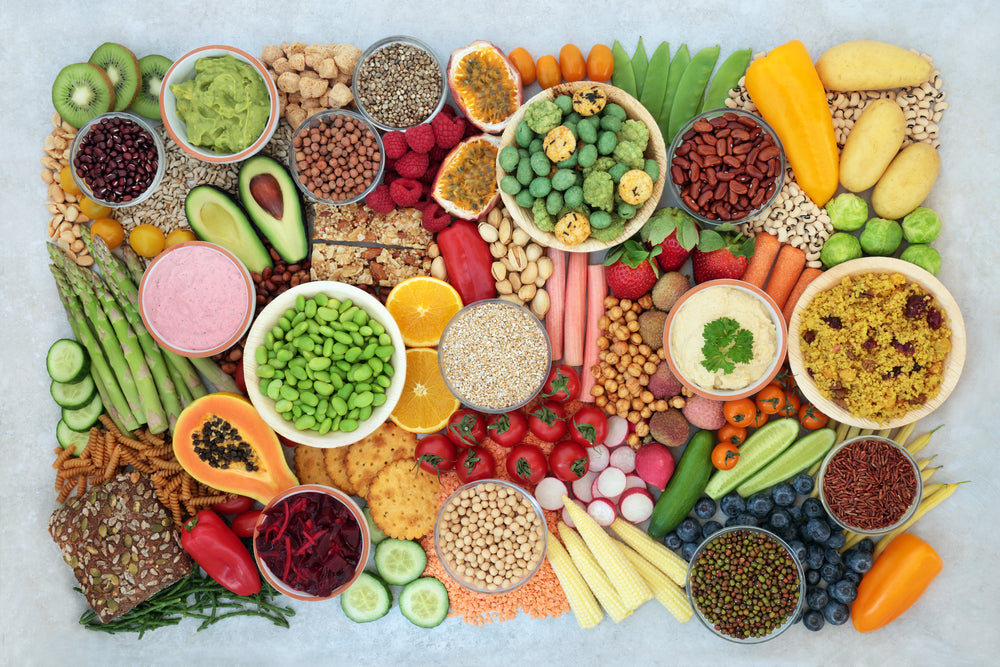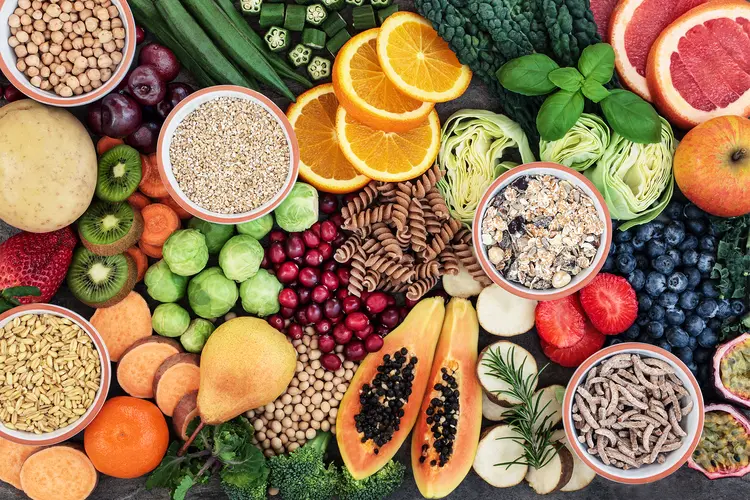Eating the right high-fiber foods for digestion plays a key role in maintaining overall health. Fiber not only keeps bowel movements regular but also supports a healthy gut microbiome, reduces bloating, and promotes satiety. Adding fiber-rich foods like fruits, vegetables, legumes, and whole grains into your meals can significantly improve digestive function. These gut-friendly foods also help regulate blood sugar, manage cholesterol, and prevent constipation. Choosing a variety of soluble and insoluble fiber sources ensures complete digestive support. This article explores the most effective high-fiber foods and offers simple tips to include them daily for stronger digestion and long-term wellness.

Why Fiber Matters for Digestion
Fiber is essential because it acts like fuel for your gut. Fiber-rich foods slow digestion, which stabilizes blood sugar, and keep the gut environment balanced. Soluble fiber, found in oats and beans, absorbs water and forms a gel that eases bowel movements. Insoluble fiber, found in vegetables and whole grains, adds bulk and prevents constipation. Together, they create a healthy rhythm for the digestive system. By regularly including high-fiber foods for digestion, you reduce the risk of bloating, irregularity, and gut discomfort. Fiber also supports good bacteria in the intestines, which strengthens both digestion and immunity naturally.
Fruits Rich in Fiber
Fruits are among the easiest high-fiber foods to include daily. Apples, pears, bananas, and berries contain both soluble and insoluble fiber, making them powerful gut-friendly foods. Berries like raspberries and blueberries are especially rich in antioxidants, which also reduce inflammation in the digestive system. Bananas provide resistant starch that feeds healthy gut bacteria. Eating fruit as snacks or adding them to smoothies and oatmeal is a simple way to increase fiber. Dried fruits such as prunes and figs are also excellent for relieving constipation naturally. By choosing a colorful mix of fruits, you supply your body with vitamins, hydration, and essential fiber for smooth digestion.
Vegetables for Gut Support
Vegetables are excellent fiber-rich foods that keep the digestive tract healthy. Leafy greens like spinach, kale, and Swiss chard provide insoluble fiber that adds bulk to stool. Cruciferous vegetables such as broccoli, cauliflower, and Brussels sprouts contain fiber along with plant compounds that support liver detoxification and gut healing. Carrots, beets, and sweet potatoes are root vegetables that provide both fiber and essential nutrients. Eating a variety of raw, steamed, or roasted vegetables ensures your body gets a balanced mix of fibers. Adding them as side dishes, soups, or salads makes it easy to incorporate these high-fiber foods for digestion into your meals daily.

Legumes and Whole Grains
Legumes like beans, lentils, and chickpeas are among the best high-fiber foods because they provide protein along with soluble fiber. A cup of lentil soup or a chickpea salad is both filling and beneficial for digestion. Whole grains such as oats, quinoa, brown rice, and barley also support gut health by providing steady energy and improving bowel movements. Unlike refined grains, whole grains retain their fiber-rich outer layer, which makes them far better for digestion. Eating legumes and whole grains together creates a balanced meal that supports both gut bacteria and long-lasting fullness. These foods are versatile, affordable, and effective for promoting healthy digestion every day.

Tips to Add More Fiber Daily
Adding more high-fiber foods for digestion can be simple with a few habits. Start your day with oatmeal topped with berries, snack on nuts and seeds, and include salads with leafy greens at lunch. Replace refined bread and rice with whole grain options for extra fiber. Drink enough water since fiber works best when paired with hydration. Gradually increase your intake to avoid bloating, allowing your body to adjust. A balanced mix of fruits, vegetables, legumes, and whole grains ensures you meet your daily fiber needs. These small steps support smooth digestion and long-term gut health naturally.
